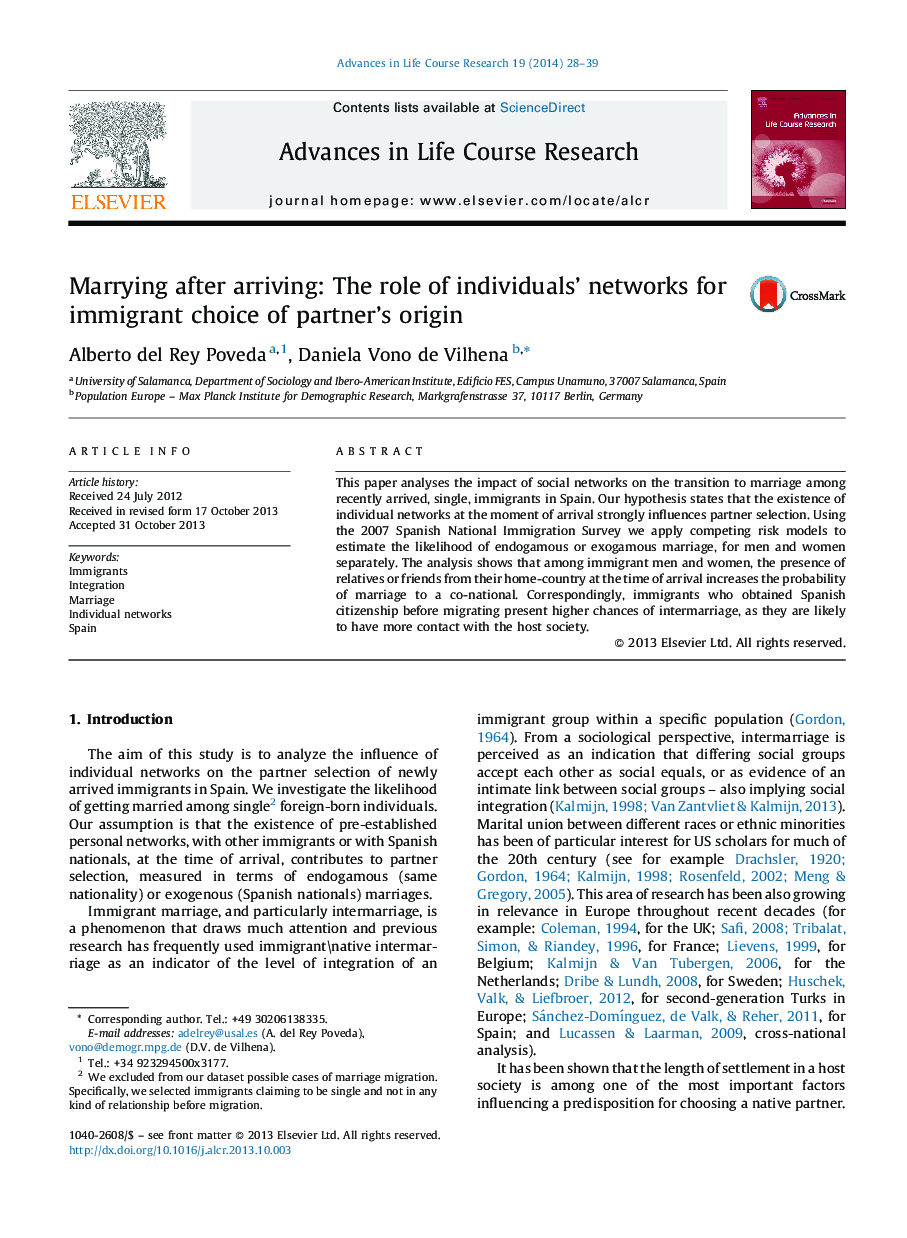| کد مقاله | کد نشریه | سال انتشار | مقاله انگلیسی | نسخه تمام متن |
|---|---|---|---|---|
| 313721 | 534529 | 2014 | 12 صفحه PDF | دانلود رایگان |
This paper analyses the impact of social networks on the transition to marriage among recently arrived, single, immigrants in Spain. Our hypothesis states that the existence of individual networks at the moment of arrival strongly influences partner selection. Using the 2007 Spanish National Immigration Survey we apply competing risk models to estimate the likelihood of endogamous or exogamous marriage, for men and women separately. The analysis shows that among immigrant men and women, the presence of relatives or friends from their home-country at the time of arrival increases the probability of marriage to a co-national. Correspondingly, immigrants who obtained Spanish citizenship before migrating present higher chances of intermarriage, as they are likely to have more contact with the host society.
Journal: Advances in Life Course Research - Volume 19, March 2014, Pages 28–39
